If somebody asks what could be the worst manmade catastrophe in the future, the answer can easily be contemplated, a nuclear war. During the cold war between the United States of America and the then Soviet Union, people were contemplating that a nuclear war was inevitable. Although the cold war ended in the early 90s, the possibility of a nuclear war still remains as some of the powerful countries possess nuclear weapons.
[the_ad_placement id=”in-text-1-type-r”]In any critical condition, a declaration of a leader to use this weapon can even end the whole world. For that reason, general people like us should learn how to survive in this man made catastrophe. If you are aware of the devastating outcome of the nuclear bombing in Hiroshima and Nagasaki in 1945, you may wonder how it can even be possible to survive in such situation.
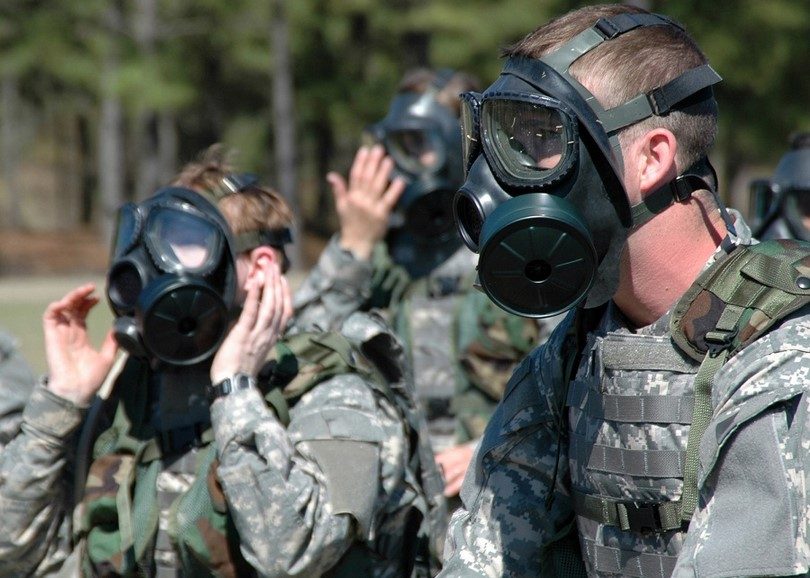
This short article will guide you to learn some crucial techniques to survive in a nuclear war.
Learn about nuclear weapons
The most powerful weapon invented till date is nuclear weapons. It can cause devastating effect; the shocking outcome can be found in the history of World War Two. More than 246,000 people were killed in Hiroshima and Nagasaki.
Scientists categorized the nuclear weapons into two classes, one is Fission Bombs (A-Bombs) and another is Fusion Bombs (H-Bombs).
- Fission bombs (A-Bombs): It is the basic form of nuclear bomb. So far, this bomb was used in the war fields. How it works: in this type of bomb, at first neutrons hit heavy atom nuclei. It splits these nuclei. As a result, huge quantities of energy are released. In addition to that, additional neutrons are also released. These neutrons hit other nuclei and in this way, the process continues and produces huge energy.
- Fusion bombs (H-Bombs): Fusion weapons are many hundreds times of powerful than the fission bombs used in Hiroshima and Nagasaki. The arsenal of USA and Russia possess some of this kind of weapons. How it works: this bomb mainly uses the excessive heat of the fission bombs. This heat compresses and heats up two isotopes of hydrogen, deuterium and tritium. These two isotopes fuse and release great amounts of energy. As this bomb is required huge amount of energy, for that reason these weapons are named “Thermonuclear weapons” as well.
Advance preparation
It is always better to make a plan to prevent or lessen the damages. For a contemplated nuclear war, you should make a plan in advance.
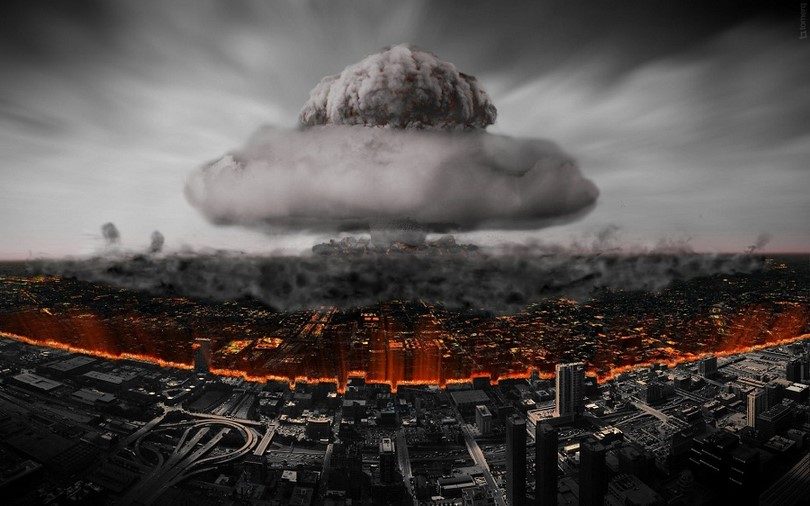
Here are some suggestions to make such plan:
Start planning: If a nuclear attack does take place, the best thing you should do is to avoid going outside. You should stay at your shelter for minimum 48 hours; it is better if you stay there longer. Try to store foods, water and medical supplies in advance. If you require a special necessary kit, do not forget to store it as well. See our article on how to build a bunker for shelter, which is an important article for everyone.
Store the dry and non-perishable foods: Dry and non-perishable foods can last for a long period of time. The best options are those foods, which contain carbohydrates in large quantity. Some of them are, honey, sugar, white rice, beans, oats, biscuits, powdered milk and so on. If you store canned food, do not forget to keep a can opener for them.
Water: You should store water in food grade plastic containers. Consider to consume one gallon water for one person every day. Besides that, try to keep some water purifier as well. For purifying water, you should preserve the household bleach and Lugol’s solution.
Medical supplies: Even some medical items can bring difference between life and death. It is better to store at least following items:
- First aid kit: You can purchase a pre-packed first aid kit. However, you can make it yourself. To make one, you will store sterile gauze, bandage, scissors, tweezers (to pick up small or thin objects), antibiotic ointment, a working thermometer and a blanket.
- Instruction booklet for the first aid kit: You should buy an authentic booklet for the first aid kit. For that reason, you can collect it from organizations like Red Cross. You can also google it, but it is better to find the booklet from an authentic source (article or video). You should learn how to bandage, apply CPR, treat a burnt area and help to prevent shock (insufficient blood flow through the important organs and tissue).
Collect instruments for communication: In a crucial time like nuclear attack, it will be very important for you to maintain communication. You have to be notified on the one hand, and you will need to inform others your position on the other hand. For these two purposes, you should store at least the following items:
- A radio: A radio is essential for knowing the updates. You may have a radio on your smartphones. However, you can store a particular radio for the emergency. If your radio is a battery operated model, keep some spare batteries as well. You can have a solar powered radio.
- A whistle: A whistle will be essential for giving signal.
- A cell phone: It should not be expected that the mobile companies would be able to run their operation in such situation. Nevertheless, you should store one. Try to find a solar charger for your phone.
Some other miscellaneous items: You should store some other important emergency kits. These are, flashlights and batteries for it, some dust masks, duct tapes, tissue and wipes for your personal hygiene, a wrench and pliers (for turning off gas and water line).
Always listen to the news update: Nuclear war will not come out of the blue, rather one country may apply its nuclear weapons on another country under a critical political condition. The most likely position is that, both countries are involved in a war with each other. For that reason, always listen to the news update, especially when your country is under huge political crisis. Even a particular region of a country may be destroyed if nuclear bomb is applied.
However, the immediate effect of it can be more dangerous. Every country uses certain code work to alert its people from such danger. For example, United States of America and Canada use the word DEFCON. DEF is derived from Defence and the CON is derived from Condition.
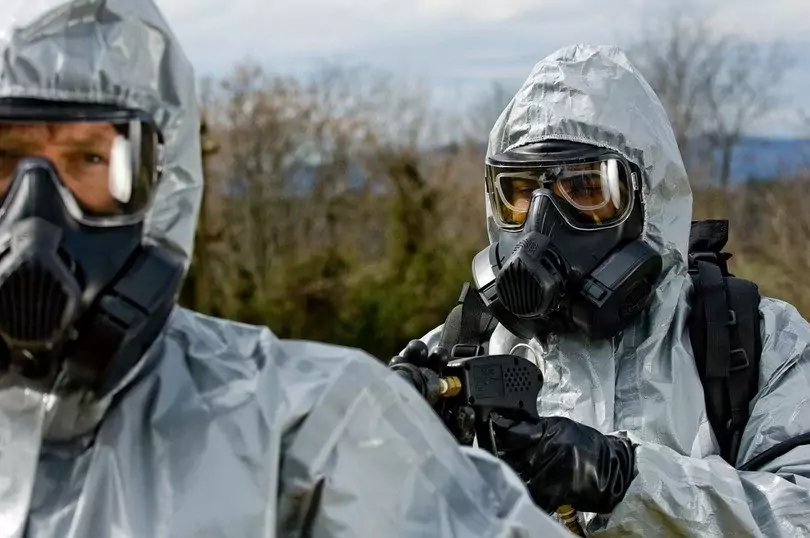
Assess the risk of nuclear attack and make a plan for evacuation: If you are able to keep recent updates of your country, you will be able to assess the possibility of being attacked by nuclear weapons. If you find that a nuclear attack is imminent, then you should leave your house and seek a suitable shelter where the effect of the nuclear bomb does not reach.
You can search following infrastructures near to your house and make a plan of taking shelters in these places considering the possibility of being attacked:
- The nearest airfield and naval base: It is highly likely that, these infrastructures will be attacked even in a limited nuclear war. The large and common airfields and naval areas will be highly risky area. It will be better if you avoid these areas.
- The commercial ports: Enemy countries will target these places to hamper and destroy the economy and communication within your country. These places will be under certain risk of being attacked by nuclear weapons.
- Runways (Over 10,000 feet or 3,048 m): These runways are also essential for communication and economy of your state. Avoid these places as the enemy country will target this place and try to destroy fully by using nuclear weapons.
- Buildings of government: These are crucial for operating local government of a particular area. For that reason, if it is a limited version of nuclear attack, then it is less likely to be attacked. However, if it is an all-out nuclear attack, then these infrastructures will certainly be attacked.
- Industrial cities: These are important for a country as these areas produce the necessary products. It is less likely that these areas will be under attack in the event of an extreme nuclear war.
How to survive in an imminent attack
Now you are prepared for the nuclear attack. However, the question is how you can even survive in such attack when it is imminent. The next section of this article will guide you through this.
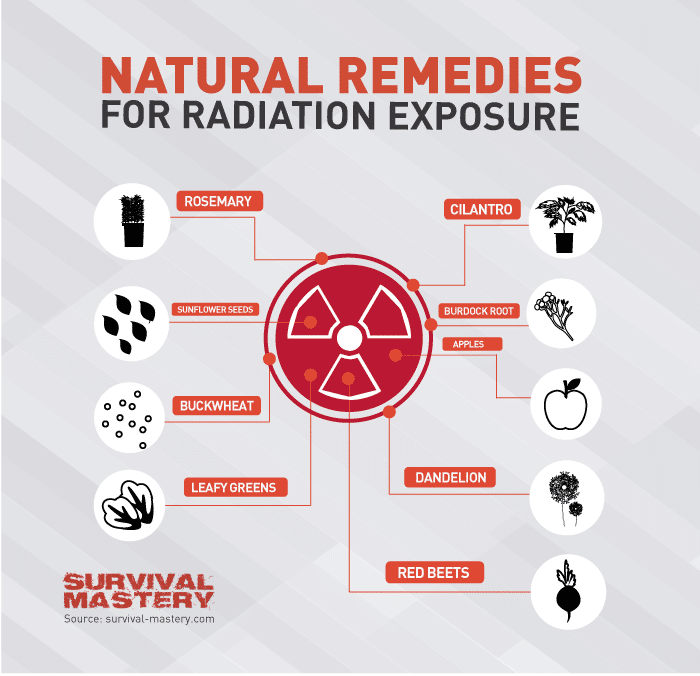
Try to find a shelter immediately: To understand whether the attack is imminent, you will need to consider the geopolitical condition. Apart from this, the best warning for an imminent nuclear attack is siren. If there is no siren or warning for an attack, then the blast itself the way to know that you are under attack.
[the_ad_placement id=”in-text-2-type-r”]Now, consider the following possibilities:
- If you are in the vicinity of the blast (it is also called zero ground), then you cannot expect that you will be alive. The only exception could be if you are in a “very safe” place, which can protect you from the radiation.
- If you are a few miles out from zero ground, then you will have ten to thirty seconds until the waves of the blast hit you.
You should never look directly at the blast or fireball; it can cause blindness temporarily. Remember, the damage depends on the size and power of the bomb and the weather condition. You can suffer thermal burn (third degree) even if you are eight kilometres or five miles away from the ground zero.
If you are 32 kilometres or 20 miles away from the ground zero, the heat of the blast can burn your skin off. The wind of the attacked area will peak at almost 960 km/hr or 600 mph.
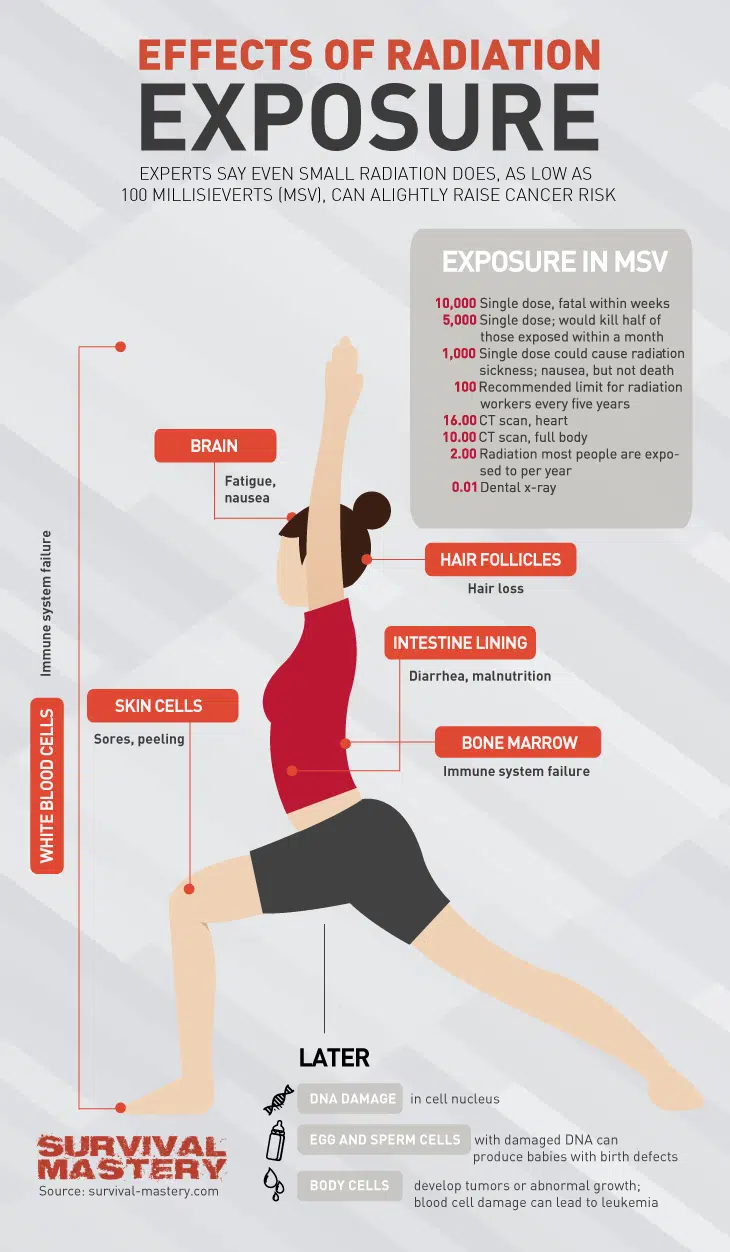
As you understand now how much time you have, consider following tasks to save you from the attack:
- Some countries have atomic shelters. Seek any such shelter. When hear the signal or warning from radio, reach and stay there safely.
- If you fail to find a shelter, it is better to lay your face down on a depressed area. Try to cover your skin as far as possible. You can also dig the ground quickly to do so.
- If you are in a house or indoor, stay there only if you are sure that that building will not suffer damage for the heat and radiation. Rather, the wall of the building will provide you protection. It also depends on how much close you are to the zero ground and the construction of the building. Stay away from windows; these will certainly suffer damage. It would be better if you are in a room without any window.
- Avoid inflammable things, such as oil or oil based material and nylon.
Make shield against the radiation: If you have decided to stay in a trench, then make a roof for it. If you are inside a house, then pile up soil, dirt or any other hard material. You can use following materials to reduce the effect of radiation:
- Steel: you need 21cm or 0.7 feet wide steel to reduce the radiation.
- Rock: you should pile up rocks to make 70 to 100 cm or two to three feet wide wall.
- Concrete: make a 66cm or 2.2 feet wide wall using concrete to protect you from the radiation.
- Wood: if you can make a 2.5 m or 8.8 feet wide wall by using wood, then you can save yourself from the radiation.
- Other materials: you can use following materials to make a radiation protective wall.
- Soil: the width of wall should be 1 m or 3.3 feet
- Ice: the width should be 2 m or 6.6 feet
- Snow: the wall should be 6m or 20-22 feet wide
Consider staying at the safe place for 8 to 9 days: You should never expose yourself to outside for the first 48 hours. The aim is to avoid the fission products and radiation of the blast. Fortunately, the deadliest fission product, radio-iodine, loses its half-life within the first eight to nine days.
Limit your exposure to it within this time limit. It takes ninety days to decay naturally. However, other two main products are Caesium and Strontium. They are absorbed by the nature; they can be found in the food products. Wind can carry them to the thousands miles away; so even if you are so far from the zero ground, chances are you are not actually safe.

Try to manage foods – even though you store your food, it will finish within first few days. You have to go outside to gather food. If aid does not reach at you, you have to collect foods from outside.
[the_ad_placement id=”in-text-3-type-r”]Here are some tips for you:
- Water: Never consume open water. You should collect water from spring, a covered well or some other underground sources. Stream and lake water are the last resorts. You can make filter by digging a one-foot hole from the bank and collect the water, which seeps in there. Boil that water before drinking to kill harmful bacteria. If you are in a building, the water is safe. However, if no water is in the house, then use the water from the faucet of highest point of the house and later use the water of the lowest point.
- Canned food: It is all right to consume them as long as there is no puncture in the can. Read our tips and guidelines on shelf-life and longevity of tinned food.
- Animals: You can eat animals, but be selective. Avoid heart, liver and kidneys. Do not eat meat close to the bones because it contains radiation.
- Plants: It is better to eat roots and undergrowth plants, such as carrots and potatoes.
- Proper clothing: Try to cover your entire body when you are going to expose yourself to the radiation. Clean your clothes and wash your exposed area as soon as possible.
Treat your affected area:
- Minor burn: Another name is beta burn. Immerse your burnt area into cold water for five minutes. Remove the contaminants by washing if skin begins to blister or break, but never break the blisters. Cover the area only this situation; otherwise wash the area and protect the burnt area applying Vaseline.
- Thermal burn: It is also named severe burn; it can even be life threatening. Remember these following steps to treat a thermal burn.
- Avoid any further contamination.
- Remove the covering cloth very gently. If it is stuck on the burnt area, then do not remove it. Do not apply ointment on the burnt area. In serious scenario, call the medical team.
- Never use a usual sterile medical dressing, which are not particularly intended for burnt area. Non-adhesive dressing is suitable to use for short time; you can use plastic wrap for longer period.
- Shock prevention: Another crucial health issue is insufficient blood circulation through the important organs and tissues of the body. It can cause various severe problems such as huge loss of blood and deep burns. Common symptoms are thirst, sweating (even the skin is cool), rapid heartbeat and pale skin. Massage the chest to increase and maintain the heartbeat and respiration. Loosen the tight clothes.
The saddest truth is that, it is very difficult for a victim to survive.
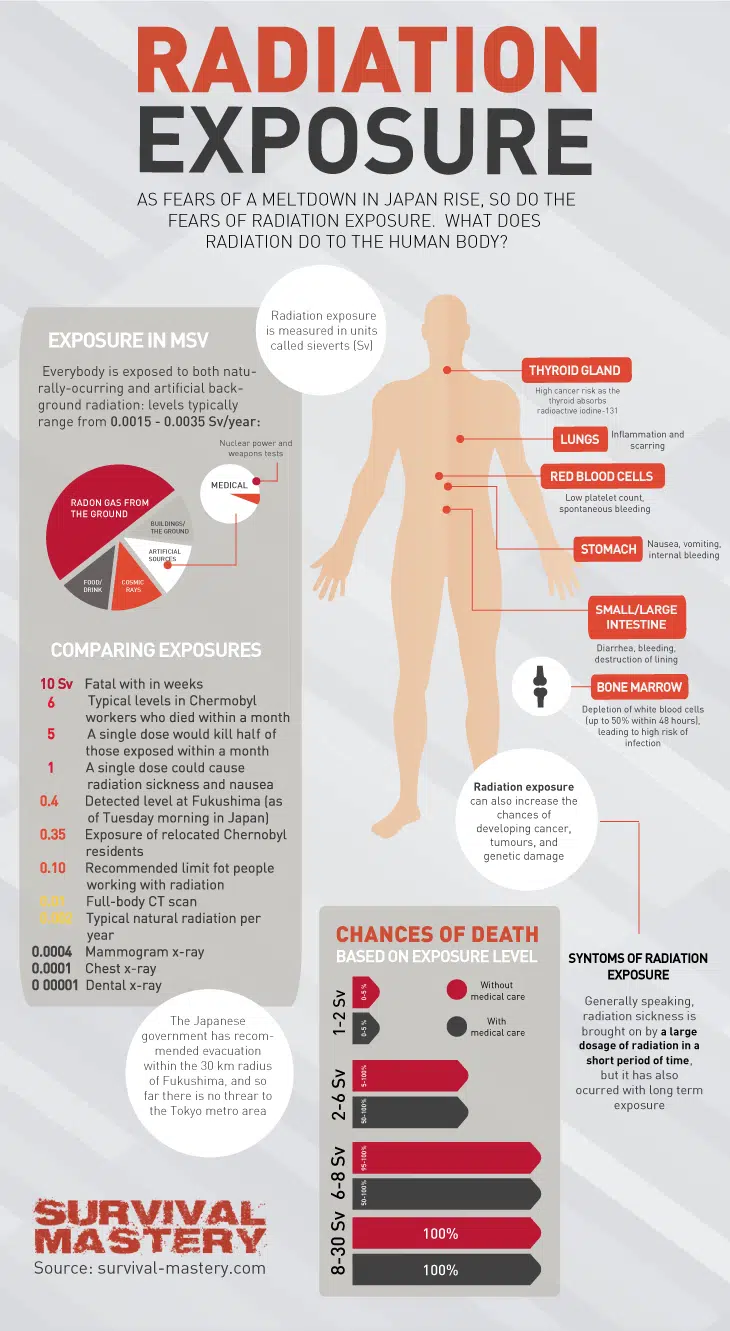
When victim’s death is imminent then it will be better to apply the resources to those who are in better medical condition. Very young and old persons are vulnerable to nuclear attacks.
Check out our popular article on how to survive the end of the world, which is a very interesting and useful piece.

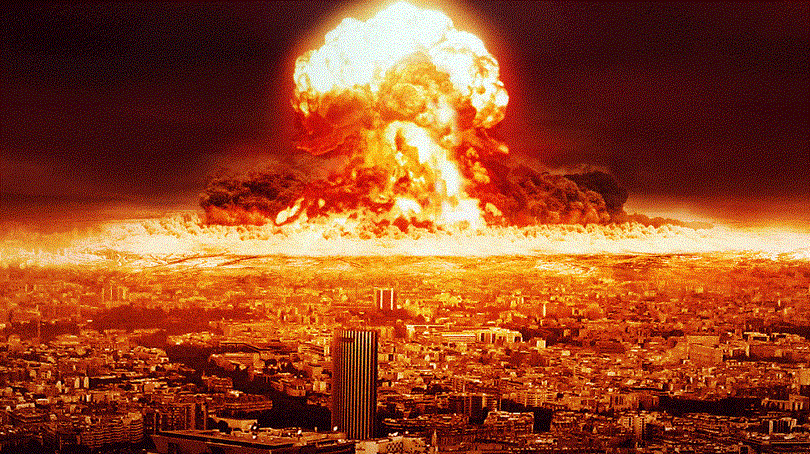

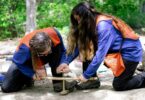
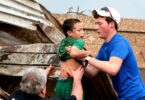

I keep all of my vital information that I will need in a thumb drive full of PDFs of manuals/books/etc. I also have hard copies of this data in case electricity goes out. This is just one aspect of my bigger plan, I’ll have you know.
Thumb drives are always a good idea but we never know how well our computer systems will work after a nuclear attack. Make sure to store those printed back-ups in a zip lock back placed inside another zip lock bag and then into a fireproof mini-safe. This will ensure that your documents are protected from whatever may hit us during SHTF situations.
I’d like to elaborate on the ‘listen to the news’ part. I think all the preparation would be meaningless if we were all so busy preparing for it that we’re clueless if it actually happens.
So for the news (and this is the case where the government actually knows of the attack), you can check the Emergency Broadcast System. Otherwise, and especially when you have clear skies, I read that ICBMs trajectory can take as long as 40mins to as early as 10 (nuclear-loaded submarines) so there’s your allowance.
The best nuclear war survival skills are all associated with: psychological preparations; warning & communications; evacuations; shelter; ventilation & cooling of shelters; and protection against fires & carbon monoxide.
Iv copied just about everything.. manuals on everything, copies of important papers, pictures I consider un replaceable.. Even downloaded hundreds of movies.. on thumb drives/SD drives and external hard drives.. along with pretty much originals…
But if there is a nuk blast, dont bet your computer, printer, or other electronic equipment will be in working order! Even ground nuk blast will provide ample EMP to destroy electronics. It wont likely have the range of an aerial blast of 200 miles in the atmosphere.
I have a couple of 12vdc input laptops, and a couple 12vdc Bubble Jet printers, and a camera.. and an ammo can full of paper (and ink bottles for refilling the REFILLABLE INK TANKS of the bubble jets).
I chose 12vDC as 12vdc is both readily available, easy to generate, can be stored in readily available batteries. AC power CANNOT be stored (but if you need it, have an use and inverter).
The camera is useful as a sort of scanner. I suggest a DSLR for versatility but anything is better then nothing.
I also carry a folding solar panel of top quality, an MPPS for voltage regulation.. a Yeasu FT-857D and decent antenna tuner… and a set of several handheld ham radios such as the UV5R’s. UV5R’s are capable of covering much of the same frequencies as the little FRS/GPMS radios, only with much greater power and range, and they have FAR greater options.. from batteries/power sources, easily changeable antennas and endless choices (many compact you can make). A word of caution; No one picks up these radios and “Just figures it out”. DO NOT WAIT FOR AN EMERGENCY TO LEARN HOW TO USE! Get a ham license and learn to use… and those you might be with.
Keep these items in secured faraday cages/boxes. I use a separate memory stick for updates and occasionally update the external HD.
I use MODIFIED ammo cans for faraday cages almost identical to Dr. Arthur Bradley’s (Ph.D) “design” and can be viewed at https://disasterpreparer.com. There is a lot of demonstrations Dr. Bradley does that would be of value to those not familiar with faraday containments. I have discussed a number of issues with Dr. Bradley, lastly magnetic saturation of faraday boxes. But that’s for another conversation.
As for a REALLY, REALLY, REALLY good site for nuclear preparedness.. is http://www.Ki4u.com. Within the site is a book.. older, but all still very accurate and up to date.. it can be downloaded or purchased. This book contains a TON of valuable information. Another extremely good book, now even recommended on the floor of Congress.. is “One Second After”. It will OPEN YOUR EYES if you are not there already! Cant recommend it enough!
I should state that I have no gains of any kind in recommending these sites and materials.. only that perhaps someone understands the gravity of things around us here in the US first of all, and that more people might be prepared.
I prefer to maintain my anonymity but Iv been studying EMP and preparedness for at least 10 years, and teach to others.